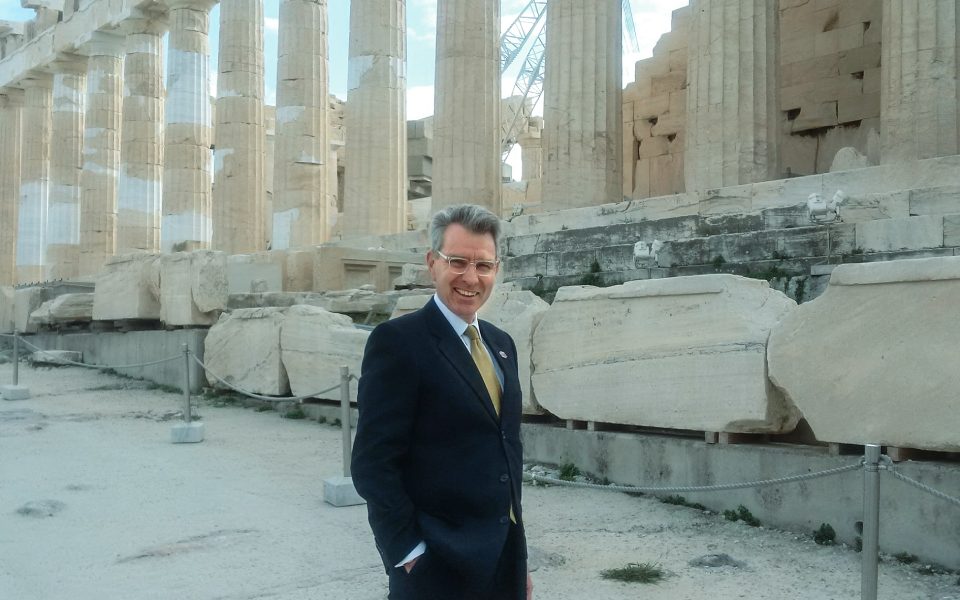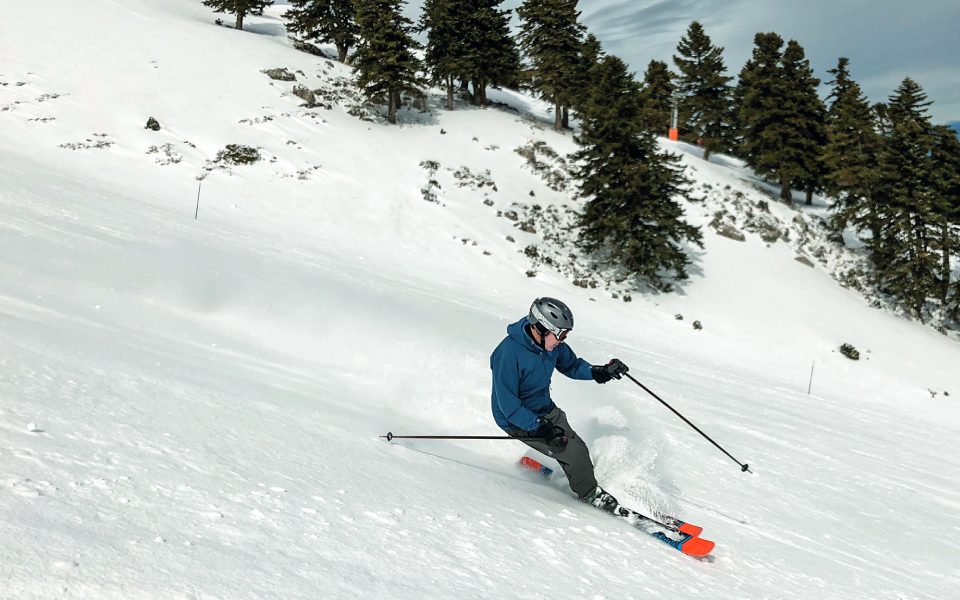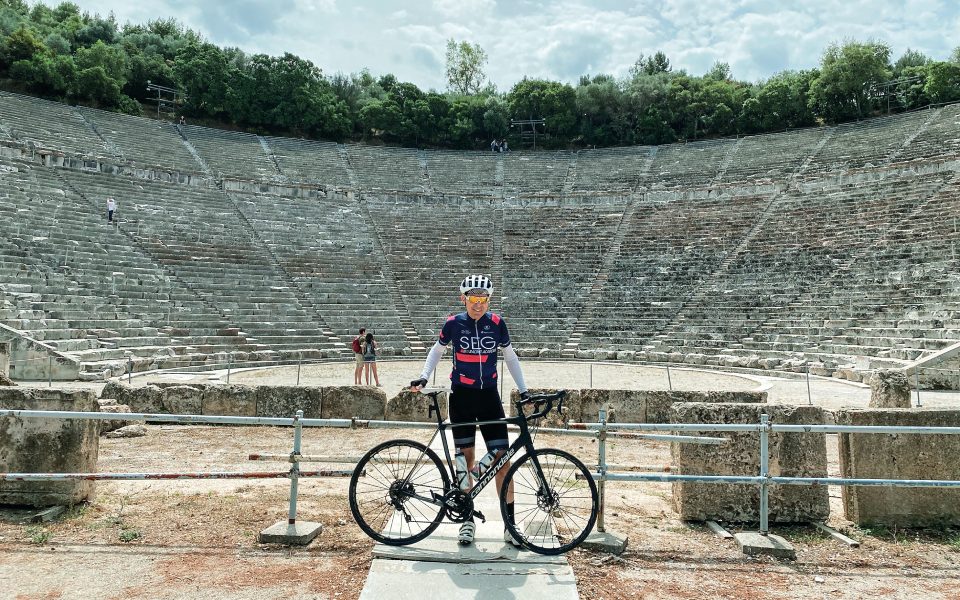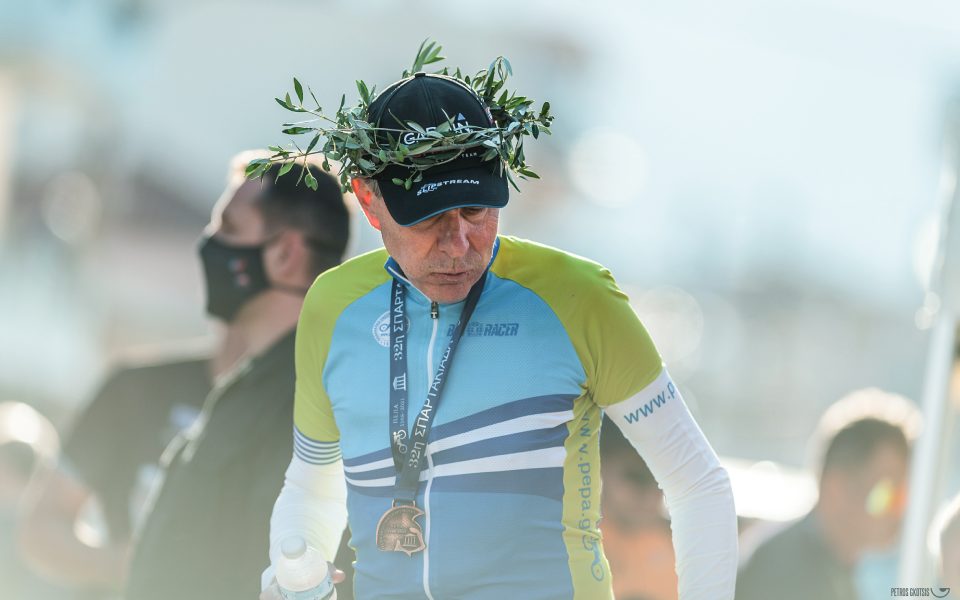It was, I think, the first month of Geoffrey Pyatt’s term in Athens when I met the then new US envoy at a cultural event. The ground was “neutral” but people were eager to meet him. I observed him from a distance, trying to form a first impression. Essentially, I wanted to see what category of diplomat he belonged to: those who did their job well but were not particularly interested in learning about the local culture, or those who did a good job and were keen to immerse themselves in the life of the country and the city where destiny had decided they should spend the next three or four years of their life.
On that pleasant evening, I was unable to reach a final conclusion. The new ambassador certainly appeared to be pleasant, very polite and approachable. He also seemed to be enjoying his mission and socializing; not the sort of diplomat who constantly glances at his watch and would clearly prefer to be elsewhere. What I did not expect was the side which he soon began to reveal: that of a moderate, open-minded man who had arrived one year after the signing of Greece’s third successive bailout program, with the difficult task of contributing to the country’s return to normalcy after six years of painful recession. And not only has he done just that, but he has also overseen one of the best ever periods for Greek-US relations. Above all, I could never have imagined a diplomat who frequently takes a two-hour bike ride to enjoy the fabulous sunset at Cape Sounion, who travels around his beloved Peloponnese with the enthusiasm of a teenage explorer, the kind of person who, even after a serious accident, focuses solely on the solution rather than the problem.
This is the man who, in September, completed a five-year term in Athens, at a time when ambassadorial postings rarely exceed three-and-a-half years. And Geoffrey Pyatt is still here, which in itself is a good reason to seek insights into his unexpectedly long Greek experience.

If I’m not mistaken, you’re the longest-serving US ambassador to Athens. Instead of the usual three years or so, your term has already exceeded five years. Personal choice, or another consequence of the pandemic?
I’m happy to share that it has nothing to do with the pandemic. It’s a personal choice. When Secretary Pompeo came here, he asked me what I would like to do next. And I said I’d be happy to stay. At that point, they were still going back and forth over who my successor might be. There are also personnel system reasons, and then, of course, the election and the transition. But my wife and I were delighted to stay here. It’s been a wonderful five years, and I’m very proud of what the whole team has accomplished.
Given the strict security measures, is there any opportunity for a US ambassador to explore the city in which he’s living? Can you wake up one day and say to your wife, “Let’s take a look at this new place everyone’s talking about”
That’s a really good question. I think it was my first weekend in Athens, I woke up with the desire to explore Athens and decided to walk to the top of Lycabettus Hill. But I soon had this whole parade with me. I think it was the last time I walked to the top of Lycabettus. So, security does create limits, but I worked very hard to explore new things. If you talk to my bodyguards, they will tell you that they have seen more of Greece over the past five years than they ever imagined and have enjoyed the places they’ve gotten to know.
I remember one year, my wife and I were visiting Metsovo for American Thanksgiving, and there’s a running trail that goes up through the ski pistes and then around the mountains. It was a beautiful time of year. The leaves were changing. Bear paw prints were everywhere, in the mud and at higher elevations in the snow. And my bodyguards were like, “Wow, this is really amazing; I never knew Greece had places like this.” One thing that helps me explore an area even further is going out on my bike. You get a different perspective when you get off the main roads.

Your passion for cycling is well known. In the five years you have been here, has there been any improvement in the way Greek drivers treat cyclists on the road?
Well, first of all, there are a lot more people out cycling. In Greece, just like the rest of the world during the pandemic, bicycles took off. I give Mayor Kostas Bakoyannis a lot of credit for his efforts to create new bike routes around the city. I’m also very excited about the route announced by the prime minister, along the Athenian Riviera all the way from the Niarchos Park to Vouliagmeni. And Greece in general has amazing potential for cycling. There is a guy called Mark Cavendish who is considered one of the best cyclists in the world and whose coach is Greek. He came to Greece twice this year for training, including just before the Tour de France, where he had an incredibly successful performance. And he went everywhere. He trained on Mount Parnitha, along the coast to Sounion, as well as at a tiny village called Strava on the Corinthian Gulf. So definitely, Athens has a lot of potential, as too does the Peloponnese, which has also been attracting international attention.
Is Athens considered a suitable city for the development of a bicycle culture?
Athens is like Los Angeles. The outskirts have fantastic cycling potential. The city itself needs work, but I know that Mayor Bakoyannis is committed to doing whatever he can. And I think that the government has recognized that the use of micromobility devices, such as scooters and e-bikes, is all part of building a sustainable transportation infrastructure.

You come from California, which shares certain similarities with Attica. But unfortunately, both areas suffer from catastrophic fires. Could you briefly enlighten us on the common points and differences of the two regions?
There’s a lot more in common in the sense that both regions are very vulnerable to the climate crisis in terms of wildfires, but also all of the other things that come with climate change: heavy rains, flooding, mudslides, the changing temperature of the sea and how that affects fisheries and animal life. So they are very similar in that regard. Also, we’re seeing in both places some of the biggest fires ever. So big, in the case of California, that they actually produce their own weather effects, because they suck so much air out of the atmosphere. In addition, in both places the fire seasons are getting longer, the rain comes later and the dry season is longer, which is exactly why these fires in August were so terrible.
I was in Ancient Olympia the other day, and the mayor there said that the last rain fell on March 28th. We saw that also in Mati, and in the northern part of Athens this year. The regions that are most vulnerable are the ones where residential areas meet the forests.
And that’s very much the case in California too.
It’s exactly the same. So there’s a lot that we can learn. We’ve already had some exchanges between experts from the California state fire agency and the Hellenic Fire Service. And we expect to do more because this problem is sadly not going away.

What lessons could Greece learn from California in this matter?
I think we both take lessons from each other, both in operational terms, that is, the tactics of fire-fighting, but also what you do afterwards, the recovery. We have a team right now here in Greece from the US Forest Service, which has visited Evia, north Athens and Olympia, and is focusing on burnt area recovery. How to restore the land quickly in order to protect the soil, protect agriculture, and hopefully avoid future fires. And another area where I hope we can do more is the preventative action that you can take, such as thinning out forest to reduce the risk of catastrophic fires.
What was the first thing that struck you when you arrived in Athens, in either a positive or a negative way? Were you at all familiar with the city before you came?
We arrived on a Friday and I think on Sunday we went down to the Niarchos Park and then walked along the water. It was late September and it still felt like summertime. And I remember saying to my wife, “This is going to be really good.” I had no idea we’d be here for five years…
You came to Greece at a particularly difficult time for the country. How much has your perception of Athens changed in these past five years?
The most important change I’ve witnessed is the dramatic improvement in US-Greece relations, but also Greece’s emergence from the economic crisis. Its transformation from being a problem for the European Union to being a real model of success, successful governance, smart management of the pandemic, the whole digital rollout. You know, I frequently refer to the vaccination certificate on my phone and I’ve had Greeks tell me how miraculous they find it, that they’re able to have their digital certificate on their phone, that the vaccination system works so efficiently. So this is a fantastically positive narrative. It’s valuable to Greece, and it’s certainly helped to explain the massive increase in US and foreign investment interest; major projects like the Microsoft cloud computing center, the new Amazon web services office here in Athens, the whole startup scene, and then the growth of the tourism market, all the new hotels, new restaurants, with a lot of foreign capital – including American – coming into that sector too. So, it’s nice to be part of something that feels like a success story.

American visitors are perceived as being more lenient towards Athens than Europeans. Do you have an explanation for this?
I think I’d offer two explanations. One is that the United States isn’t part of the European Union. For Europeans and for the EU institutionally, Greece for many years was just a problem, a headache. The Americans didn’t view it that way because we weren’t at risk.
And I think this is also connected with what we’re celebrating this year, the bicentennial of the Greek War of Independence, and the fact that Americans have a good understanding of the history of Classical Greece and the connection between Classical Athenian democracy and American democracy. Every American, even if you’re not deeply educated, knows that we have neoclassical buildings. There are examples in all our state capitals, such as the Lincoln Memorial, and everybody knows where that architectural style comes from. And they come to Athens, look at the Acropolis, and say, “Hey, it looks just like the Lincoln Memorial.” Well, it’s really the other way around, but I think Americans understand that. My wife is an elementary school teacher and she always makes that point with her schoolkids. Their favorite unit of education has always been Greek mythology and Classical Greek history.
So, I think it’s a combination of all these things which gives Americans a positive feeling towards Greece. Then you also have the success of the Greek diaspora in the United States. Greece’s brand is a positive one and it has endured despite the crisis. I know everybody in Greece hates “My Big Fat Greek Wedding,” but even this captures the positive American cultural feeling towards Greece.

Did Athens and Greece teach you something about yourself that you didn’t know?
I’ve been a diplomat for 33 years now and you leave a little bit of yourself in every place that you serve, but every place that you serve also teaches you things, both about yourself and about the role of the United States. Being here in Greece has taught me, first of all, about the resilience of Greece and the Greek people for 2,500 years, since the time of the incredible building program on the Acropolis. And you know, this idea of inventing democracy and the endurance of that idea is really something incredibly powerful. One experience that shaped me significantly was that bike accident I had in the Mani in 2019. It was a powerful sort of personal experience. First of all because I benefited from spectacular medical care here in Greece, not to mention my rehabilitation and everything else. But it also taught me I was getting older, that I was not unbreakable, and that I needed to remember I was no longer 23 years old.
Do you think there’s been a change in the last five years in how the US views Greece?
I’m very proud of the fact that we’ve continued to build support for US-Greece relations across the political spectrum and anti-Americanism is no longer a strong card to be played in domestic politics in Greece. Plus the fact that all the political forces in the country share the view that the relationship with the United States is a positive thing that should be cultivated. And I think that’s very good for both of our countries.

On the topic of cultivating Greek-American relations, I know you’re a big basketball fan. Have you ever seen Giannis Antetokounmpo play?
One of my really fun memories from Greece was watching Giannis Antetokounmpo play here in Athens just before the World Cup in China. They had their warmup matches here at the Olympic Stadium and it was fantastic to watch for two reasons. One was that he was just such an incredibly gifted athlete, and you could see how every time he came onto the court, it lifted everyone else. I think it was Greece versus Italy. And, you know, both teams were basically Euro-league players, but then Giannis would come out and it’s just, you know, he’s at a different level.
But also, to see the reaction he got from all the Greek kids was just fantastic. I look forward to having the opportunity to watch him play in an NBA game in the United States. I remember the first time I watched a game from courtside; you suddenly realize these people are giants, but they’re also so athletic, being able to move so fast and jump so high despite weighing 150 kilos or something. It really is incredible. Then it’s the fact that he’s very proud of his Greek identity and that’s part of his identity in the United States. He’s currently the biggest NBA star, but he still talks about coming back to Greece.
Let’s say a friend of yours was visiting Athens but only for 24 hours. What three things would you recommend, beyond the must-see attractions?
This is easy. Visiting Americans often ask me for “insider” tips. So, the things on my list are, first of all, the Niarchos Center, which is a real treasure. I don’t understand why it’s not more on the tourist map… the gardens, the views over the Saronic Gulf and the islands, but also to the Acropolis… it’s all quite amazing. The other one that’s always on my list is a drive out to Cape Sounion and the Temple of Poseidon for sunset. I’ve been there hundreds of times over the past five years because it’s on one of my cycling routes. There was one time we went with some friends and it had been raining all day, but the clouds parted just before sunset. And the light was shining down through the clouds. It was like magic. Another one I recommend, in terms of restaurants, is Varoulko down in Mikrolimano. I always recommend it because the food is superb. People are always surprised because it’s very sophisticated for a fish taverna.












